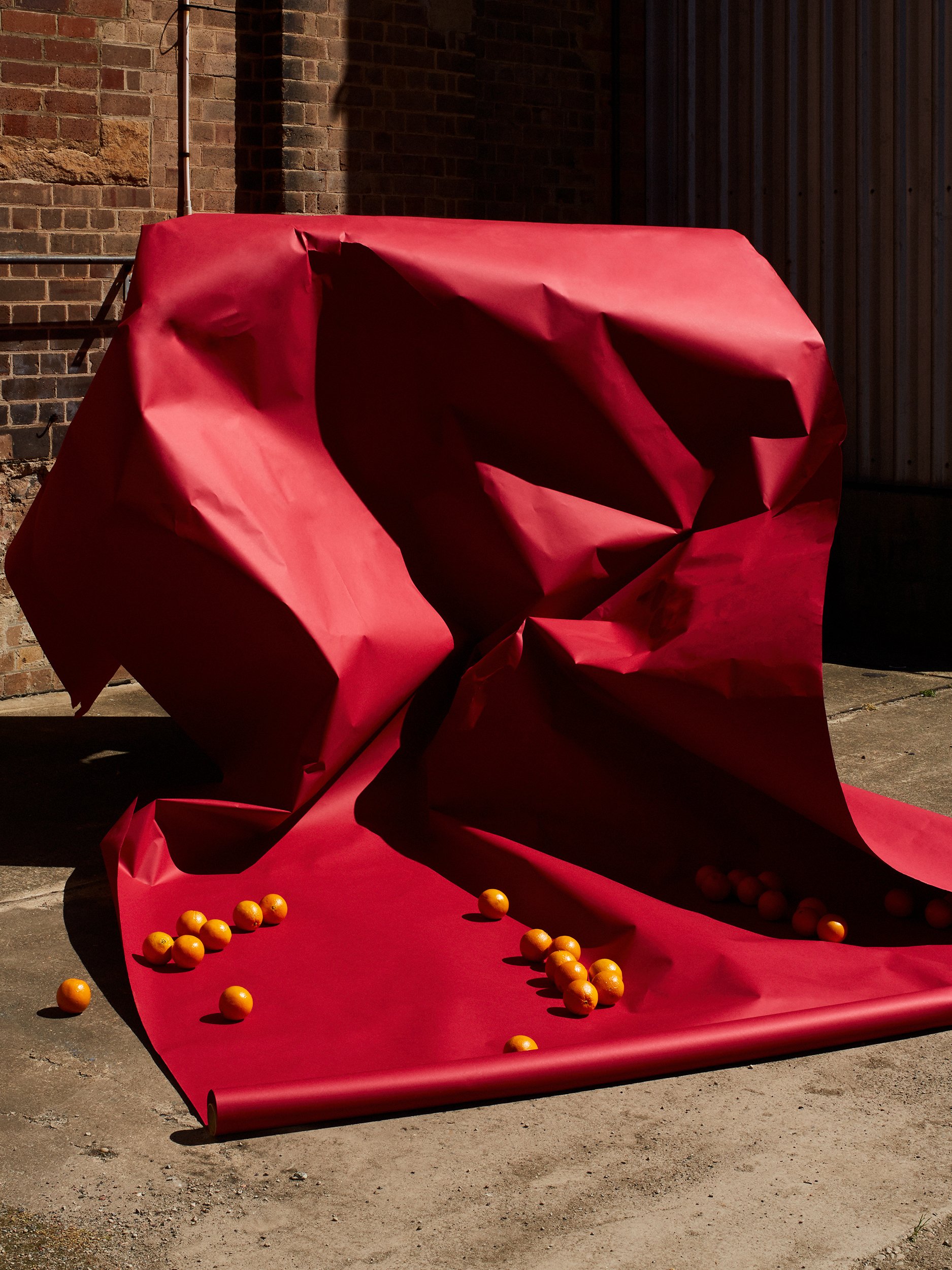A city without a street trade looks like an unfinished model, 2021
oranges, paper and recycled Tasmanian oak
dimensions variable
I’m named after my paternal grandfather Lorenzo and my maternal grandmother Ευανθία/ Evanthia. When I spoke to my grandfather, ‘Papou’ Lorenzo recently over the phone (due to COVID-19 lockdown and heavy restrictions in Western Sydney), we talked about our heritage. He said the complexities of our history were something I’d never be able to understand. My parents were born in Egypt as were all of my grandparents except for my maternal grandmother, who was born in Lebanon. They spoke Greek, Italian, English, Arabic and French. At home in Western Sydney one side speaks Italian, the other side, centred in the Inner West, speaks Greek. ‘We are not Egyptian,’ my grandfather states, but he also says he never wanted to leave: ‘We had to. We were forced to leave’. After a long discussion detailing the history of generations of Egyptian-born Europeans, we agreed that the local culture, architecture, food and symbols had penetrated our subconscious. Both my parents’ families lived in the same building in Port Said. The port was named after the Egyptian ruler of the time - Mohamed Sa’id Pasha, who granted Ferdinand de Lesseps permission to dig the Suez Canal. Lorenzo and his father helped build and maintain the Canal. The 12-storey building they lived in had a food market underneath which used an external basket and pulley system to provide daily fresh food to all residents. In Sydney the food is grown in the backyard along the riverbank with Egyptian hieroglyphs painted on the outside of the shed. My culture has been one constant trade, living a shared experience without a shared identity. 2021 [Darug (Sydney)] A CITY WITHOUT The title of the work borrows a phrase from Aleksandra Wasilkowska in her 2012 book ‘Shadow Architecture / Architektura Cienia’.
Photo: Amanda de Simone


